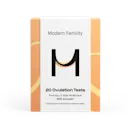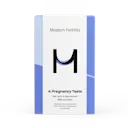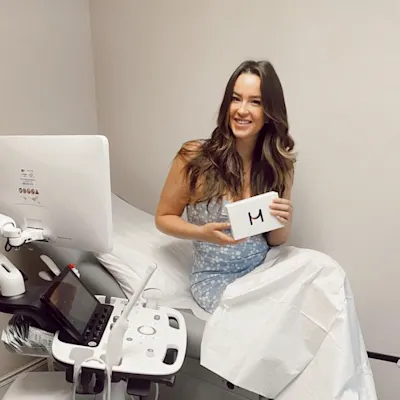Want kids one day?
Modern Fertility will guide you through your fertility hormones now, so you have options later, whether you want kids now or in the far-off future.
Physician expertise – we work with top fertility specialists to help you navigate your fertility journey
Affordable and convenient – we make it easy to get health insights at home
Rigorously validated – we only offer research-backed solutions and do our own studies to back them up



Learn about your fertility
Better understand and track where you stand when it comes to your fertility, from the comfort of your home


Get pre-conception support
Understand and prep your body while you’re trying to conceive.


Our Fertility Philosophy
Understanding your fertility now gives you more options later. Healthcare can often feel reactive, and fertility is no different. But “just wait and see” isn’t good enough. As the fertility experts at Ro, we help you find power in being proactive. No matter where you are in your fertility journey, we meet you where you’re at and give you the info you need to plan ahead and build toward the future you want.
Everyone deserves unbiased, clinically sound reproductive health info. We validate our products with clinical studies and every sample is tested in a CLIA and CAP accredited lab. We also offer free virtual events with fertility experts and medically reviewed articles you can trust. With Modern Fertility joining Ro, we are now also able to offer more clinical experts and reproductive health services to support you and your health journey.
We offer in-depth reports tailored for your hormone levels and goals, an app where you can get personalized predictions for your cycle and fertile window, and a free virtual community where you can meet people like you.
We’ll meet you where you are — because everyone’s reproductive journey is different.
Most of what we know about fertility today is based on studies of infertile populations. (Plus, there’s a massive research gap). We publish reports in peer-reviewed science journals, run validation studies on our products, and present our IRB-approved studies to the American Society for Reproductive Medicine.
We need more research to change reproductive health for the better — and we’re just getting started.
Get the real scoop
Hear it from our customers
Becca Kufrin
"I’ve been using Modern Fertility's Hormone Test since 2020 to help me better understand my body and where I’m at fertility-wise based upon my age and lifestyle. I personally test myself once or twice a year because levels change as I get older, but I also like to use my results to help map things out for if and when we do decide to have kids."
Briana Myles
"Modern Fertility is the G.O.A.T when it comes to Fertility testing and tracking! Their method is low cost, fast, and effective. My results came back in just 10 days. With just a prick of a finger and a customized dashboard, you get a window into how your egg count expected reproductive timeline compared to others your age."
Caroline Lunny
"I was 29. Regular periods, no symptoms, no reason to be concerned with my fertility. But I was curious & I thank god every day I was + that Modern Fertility made it so easy for me to be proactive. Because of them, I found out that something was silently going wrong for years. MF gave me a ground to stand on when I had to stand up to doctors who said I was too young to have hormone levels that low."
Shawn Johnson
"It makes SUCH a difference when you have a trusted resource to rely on. Modern Fertility gives you insight into your ovarian reserve, thyroid health, and other hormone factors that are good to bring up with a doctor. You can take it from home and your results come in an easy-to-understand dashboard. Plus it's super simple to download your results if you want to chat with your doctor about them."
Find out more from our Fertility reviews
Better fertility research
We’re on a mission to uncover the “why” behind infertility.
Today, research is reactive
Most fertility data comes from infertility clinics. That means we have little insight into fertility health earlier in life.
There’s a gender gap
In 2019, there were only 178 studies dedicated to female infertility. For comparison, there were 1,003 studies about erectile dysfunction.
There isn’t enough focus on fertility
We’re seeing more funding in women’s health at large, but fertility research is lagging behind.
Every Modern Fertility Hormone Test customer can opt-in to include their anonymized hormone levels in research. If you aren't a customer yet, you can contribute to closing the fertility research gap through surveys. Get involved
Clinical recommendations you can trust
Meet our expert advisors
Nataki Douglas
MD, PhD, Chair of the Modern Fertility Medical Advisory Board
Jennifer Conti
MD, MS, MSc, FACOG, Medical advisor
Temeka Zore
MD, FACOG, Medical advisor
Eduardo Hariton
MD, MBA, Medical advisor













